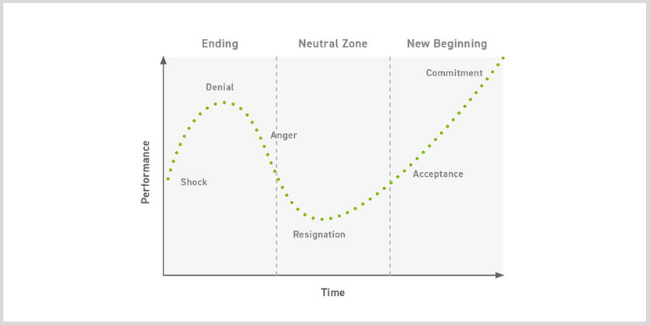
The Challenge of Change
Carolyne Crowe What challenges you about change? Our pre-webinar survey highlighted that as a group we commonly report uncertainty and the unknown as the most challenging about dealing with change. We are all creatures of habit so this is no surprise. So, what can we do to help us with the uncertainty and unknowns? It is important to note that nothing is perfect, changes takes time and is a process. Plus, anything that involves multiple people needs us to see the change through their lenses too. Here are our top takeaways from our July “The Challenge of Change” webinar which you can watch back here. Do you find yourself excited or digging your heels in when it comes to change? We will always respond emotionally before we respond logically. By our very nature we often see change as a threat. In evolutionary terms change is either a threat or an opportunity. How can you help yourself and your team re frame change as an opportunity? Consider your locus of control- are you choosing your response? What in this change situation is in your control? Think about the things in your control that you can influence. Taking on a problem focused strategy will allow you to make a plan and suggest constructive changes. Some things will not be in your control, this is where we have to re frame our situation using a focused strategy. Acceptance doesn’t mean you have to like the change but it gives you mental headspace without resistance. Check in with your mindset around change too. What language are you using about the change in question? What we think about we bring about, so negative language around change will not always help us move through it. Telling often doesn’t get the response you desire regarding change management. Perhaps, limit telling people why they need to change and instead find out what they don’t know or understand- where are the gaps in their information? Explaining can be tiring, whereas coaching and asking questions means you will understand others more and be able to figure out how to help them through change. Awareness of ourselves and others in response to change can be supported by personality profiling such as DISC [insert link to our DISC profiling services]. Knowing your team in this way and communicating appropriately with each member will ensure buy in or push back to change. Profiling will help you understand which buttons you press in others. Take a peek at our people puzzle webinar to find out about the power of personality profiling. The phases of change graph (see above) is well recognised by occupational psychologists. The change phase is not linear. You might zip through quickly or you may move from shock to denial to acceptance and flip back. The thing to remember is that we will ALL go through this as we are all human beings. How can you help yourself and your teams go from left to right? Ask your team where they are currently sitting on this graph. Then get them to think about why they might be there and what needs to happen to move one step forward. What do they need to know from their managers and teams to commit to change? You want to front load your preparation for the phases of change to pick up enough momentum so that you can skate through the phase ramps towards acceptance. Don’t leave leading change to chance! For more useful tools for leading change and dealing with resistance... or if you're going through a big change yourself and need some strategies yourself, rewatch our Challenge of Change Webinar.“Change is helped when we make sure we are changing from a position of choice rather than from a position of fear”
Change is essential for survival- it's important to think how you respond to change
Try to understand what others need instead of trying to influence change by explaining...
Top Tip: Do you know your teams' personality profiles?
Phases of Change- Where Do You Sit?
Top Tip: Use this graphic with your teams
About VDS Training
VDS Training are passionate about developing all members of the veterinary team, to help you overcome the personal and professional challenges you face on a daily basis, and to build practical skills and techniques to make a real difference to you and your life.

